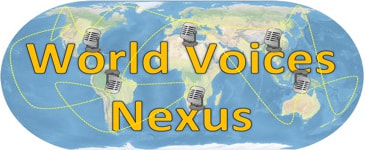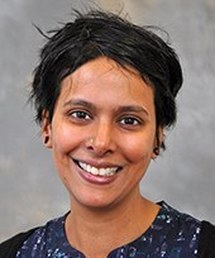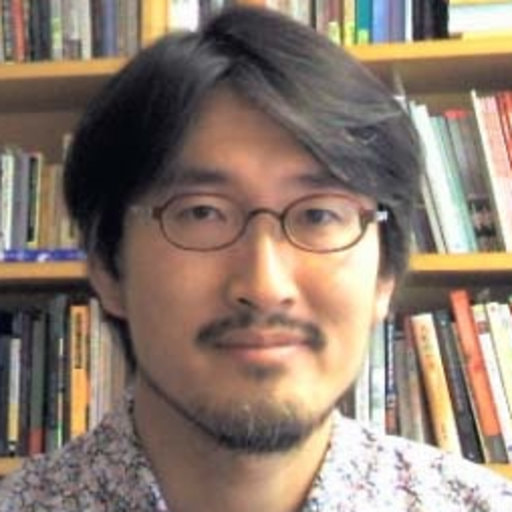- Home
- About WVN
-
WVN Issues
- Vol. 1 No. 1 (Oct. 2017) >
- Vol. 2 No. 1 (Feb. 2018) >
- Vol. 2 No. 2 (Jun. 2018) >
- Vol. 2 No. 3 (Oct. 2018) >
- Vol. 3 No. 1 (Feb. 2019) >
- Vol. 3 No. 2 (Jun. 2019) >
- Vol. 3 No. 3 (Oct. 2019) >
- Vol. 4 No. 1 (Feb. 2020) >
- Vol. 4 No. 2 (Jun. 2020) >
- Vol. 4 No. 3 (Oct. 2020) >
- Vol. 5 No. 1 (Feb. 2021) >
- Vol. 5 No. 2 (Jun. 2021) >
- Vol. 5 No. 3 (Oct. 2021) >
- Vol. 6 No. 1 (Feb. 2022) >
- Vol. 6 No. 2 (Jun. 2022) >
- Vol. 6 No. 3 (Oct. 2022) >
- Vol. 7 No. 1 (Feb. 2023) >
- Vol. 7 No. 2 (Jun. 2023) >
- Vol. 7 No. 3 (Oct. 2023) >
- Vol. 8 No. 1 (Feb. 2024) >
-
Events
- CIES 2023, Feb. 14-22, Washington D.C., USA
- ICES 4th National Conference, Tel Aviv University, Israel, 20 June 2021
- 2022 Virtual Conference of CESHK, 18-19 March 2022
- ISCEST Nigeria 7th Annual International Conference, 30 Nov.-3 Dec. 2020
- 3rd WCCES Symposium (Virtually through Zoom) 25-27 Nov. 2020
- CESA 12th Biennial Conference, Kathmandu, Nepal, 26-28 Sept. 2020
- CESI 10th International Conference, New Delhi, India, 9-11 Dec. 2019
- SOMEC Forum, Mexico City, 13 Nov. 2018
- WCCES Symposium, Geneva, 14-15 Jan. 2019
- 54th EC Meeting, Geneva, Switzerland, 14 Jan. 2019
- XVII World Congress of Comparative Education Societies, Cancún, Mexico, 20-24 May 2019
- ISCEST Nigeria 5th Annual Conference, 3-6 Dec. 2018
- CESI 9th International Conference, Vadodara, India, 14-16 Dec. 2018
- ICES 3rd National Conference, Ben-Gurion University, Israel, 17 Jan. 2019
- WCCES Retreat & EC Meeting, Johannesburg, 20-21 June 2018
- WCCES Symposium, Johannesburg, 21-22 June 2018
- 5th IOCES International Conference, 21-22 June 2018
- International Research Symposium, Sonepat, India, 11-12 Dec. 2017
- WCCES Info Session & Launch of Online Course on Practicing Nonviolence at CIES, 29 March 2018
- WCCES Leadership Meeting at CIES, 28 March 2018
- 52nd EC Meeting of WCCES, France, 10-11 Oct. 2017
- UIA Round Table Asia Pacific, Chiang Mai, Thailand, 21-22 Sept. 2017
- Online Courses
|
At the recent 2018 conference of the Comparative and International Education Society (CIES) in Mexico City, we put together a highlighted presidential panel to discuss the postcolonial politics of comparative and international educational research. Our starting point was to consider the ways in which greater historical reflexivity about the establishment of our field could help collectively rethink the norms and purposes of our scholarship, particularly the racial projects that are produced through it. Following Omi and Winant’s now classic work, we refer to ‘racial projects’ as the ideological and practical work done in the interpretation, representation, or explanation of racial meanings as part of efforts to create and govern subjects [1]. Turning our attention to the past and present racial projects of our field, we seek to build on scholarship that has questioned the colonial entanglements of disciplinary knowledge to imagine and reconstruct a comparative and international education for a postcolonial future [2].
Keita Takayama spoke on the foundational histories of the field, Arathi Sriprakash shared her research on the politics of UNESCO’s early work in comparative studies, and Jeremy Rappleye presented his historical analysis of the differing priorities or ‘streams’ of comparative research. The panel was joined by Noah Sobe and Elsie Rockwell who shared their insights into the cultural and political production of history. In this short piece we reflect on some of the key points that were discussed during the panel, focusing particularly on our analysis of race and racism, in the hope that they inspire further debate amongst readers of this forum. On historical reflexivity Global epistemic justice was one of the central themes of CIES 2018. The conference’s title, Re-Mapping Global Education: South-North Dialogue, inspired numerous papers and panels that engaged with the decolonial and postcolonial epistemic politics of educational research. Historical reflexivity is, we suggest, key to this work. Concepts such as ‘sustainability’, ‘development’, and ‘progress’ are central to comparative and international educational research and they carry normative assumptions that are historically produced and historically contested. Despite this, we note that there is relatively little scholarly or policy attention in our field dedicated to such histories. We suggest that historical analyses are important for making visible the operations of power through which approaches and concepts in educational research become normalised and dominant. We challenge both the ahistoricity of much scholarship in comparative education and the notion that history itself is uncontested. Following the work of Ann Laura Stoler, history is not to be seen as ‘background’ or as ‘context’ or something that happened ‘back then’. Nor should it be used to bolster simplistic and overly romanticised narratives of ‘how far we have come’. Rather, history is active and it shapes the present [3]. It constitutes the anticipatory politics that are at the heart of comparative education; the normative impetus to reshape different, better educational futures. This is to say, the future of our field is already historical – carrying the logics of past political economic social and cultural arrangements with it, if in different working order. The global racial projects in the foundational histories of the field In his contribution to the panel, Keita Takayama revisited the founding history of the field, looking closely at the work of the International Institute at the Teachers College (TC), Columbia University in the first few decades of the 20th century. TC established the International Institute in 1923 with a 1 million dollar gift from a Rockefeller philanthropy foundation. According to the historians of the field, the International Institute played a critical role for the early formation of comparative education. They commonly describe the institute as an active promoter of liberal and humanistic ethos of international cooperation, world peace and respect for cultural difference in the immediate aftermath of World War I human suffering and devastation. Keita argued that this was a highly selective recount of the fields’ past. He reassessed the work of the Institute within the larger geopolitics of the time, characterised by US imperial expansionism and the ideology of racial hierarchy that underpinned it. In so doing, Keita showed how TC’s International Institute was deeply complicit in the global racial project of the time. Keita’s paper detailed how the International Institute acted as a node through which the use of education as a racist technology of control spread globally. The Institute hosted and supported a large number of international students. One of the courses offered to international students was titled Education 227-228. As part of the course, the students took field trips to American schools and one of the chosen destinations was the Hampton Institute, Virginia. International students “from countries undergoing rapid modernization” were particularly encouraged to learn from the Southern experience [4]. Established in 1868 in Hampton, Virginia by Samuel Chapman Armstrong, the Hampton Institute trained African American (and Native American) teachers in the context of the racially segregated schooling of the South. After the formal end of the slavery system, the Southern industrialists and investors were keen to maintain the same socioeconomic structure as in the slavery era, predicated on subservient black labour. They embraced universal education as the key to the economic success of the South in the postbellum era, and yet their notion of universal was undercut by the ideology of racial hierarchy. Armstrong “understood the limitations of the race, and the industrial training which he offered at Hampton was designed to provide such social and economic experience as the race on the whole needed most [5].” It is widely known that the Hampton model of industrial education was debated extensively among African-American intellectuals at the time, with W. E. B. Du Bois as one of the most outspoken critics of the policy. However, little known is the colonial origin of the Hampton model, which traces back to the American education experimentation in Hawaii [6]. Richard Armstrong, the father of Samuel Chapman Armstrong—the founder of the Hampton Institute—was a Christian missionary from Massachusetts. Appointed as the minister of education in 1848 by the Hawaiian monarchy, he was instrumental in the promotion of school curriculum that focused on manual training and rudimentary literacy for the Hawaiian natives and children of migrant labourers (Chinese, Japanese and some Portuguese). This manual and industrial focus in school curriculum coincided with the radical shift in the distribution of lands and economic structure in Hawaii in the second half of the 19th century. The introduction of private land ownership resulted in the possession of fertile lands in the hands of private owners and royal families out of which sugar cane (later pineapple) economy emerged. The new school system, under Armstrong’s directives, was to serve the economic interests of this growing industry owned primarily by haole, whites born in Hawaii. Underpinning Armstrong’s curricular orientation was the ideology of racial hierarchy; native Hawaiians and non-white immigrants were “inferior in intelligence, questionable republican citizens, and appropriately suited for training as unskilled but reliable and docile workers [7].” Charles, T. Loram was one of the first white South Africans who came to pursue a doctoral degree at TC in the 1910s. Interested in studying the education of black Americans in the South, he came in contact with the Hampton Institute during his study at TC. Upon returning home, he developed the Bantu education in South Africa, the racially differentiated provision of education for black and white Africans [8]. Loram played a critical role in the trans-Atlantic transfer of the American-driven model of black education for African schools in the continent. He saw the model as a way to “inculcate African subservience to and acceptance of white authority” and “a means of maintaining a segregated society [9].” Loram was a visiting professor for the summer session of TC in 1929. By presenting the Hampton Institute as a model for countries that were undergoing rapid modernization, therefore, the International Institute accepted the same ideology of racial hierarchy and the Eurocentric notion of ‘civilizational progression.’ Facilitating the global transfers of modern racist technologies of education in and outside US, the Institute was part and parcel of the global racial project of the early 20th century. The racial contract of ‘global’ education: then and now The enactments of racial projects within comparative and international education were also the focus of Arathi Sriprakash’s contribution to the panel [10]. The postwar era of comparative and international education reflected the western-driven plural cosmopolitanism of the time. The founding rationale for the United Nations and its agencies after the Second World War was to develop a ‘new’ global humanism to guard against a return to the horrors of Nazism and its biological racism. As historical work has shown, perhaps unsurprisingly, racial hierarchies of empire were adapted into rather than abandoned by the UN’s vision of cosmopolitan internationalism [11]. The dominant liberal-pluralist discourse of the field can obfuscate the dynamics of power that maintained racial hierarchies and geopolitical divisions – and continue to do so. Historical inquiry and an historical imagination can reveal not only the limits of such discourses but also their contestations and contingencies. For example, a major comparative programme of research by UNESCO that ran from 1947 – 1953 called “The Tensions Project” offers an interesting case study of the politics of the comparative method. The Tensions project spoke directly to Unesco’s founding declaration: that “Since wars begins in the minds of men, it is in the minds of men that the defences of peace must be constructed” Here, the ‘minds of men’ became central objects of scientific comparative inquiry. And so, perhaps unsurprisingly, social psychology and strands of psychoanalysis offered key concepts and methods for researchers in the Tensions project to not only understand these minds, but to formulate education programmes under which the defences of peace could be constructed. The faith in science – and appeals to its supposed neutrality – were clear in early pronouncements of the Tensions Project: “Man has now reached a stage in his history where he can study scientifically the causes of tensions that make for war”. But the science of psychology also offered a universality that chimed with the desire for a post-racial humanism – one predicated on sameness rather than difference. That is, the Tensions project self-consciously set out to conduct international comparative research on ‘nationalism’, ‘ways of life’, and ‘public opinion’ in places as diverse as Sweden, India, France and Australia – in recognition of the commonalities of humankind. The utopian, liberal visions of the largely Euro-American team of elite social scientists involved in the central planning of the Tensions project ran quickly into the critiques and contestations of anti-colonialists and intellectuals from the global south. Unesco’s project of ‘new humanism’ had to engage with the concurrent politics of decolonisation. Indian independence in 1947 was claimed by Nehru as a ‘turning point’ for global history – signalling the start of the Third World Project. Indeed, African American sociologist W.E.B. Du Bois proclaimed with great hope that Indian Independence marked an end to the time ‘when the white man, by reason of the colour of his skin, can lord over colored people’. What we see here, in DuBois and in the work of anti-colonialists, was a historical challenge to what the contemporary political philosopher Charles Mills calls the ‘racial contract’: that is, the global political, moral, and epistemic system of white supremacy [12]. Scholars have shown how the UN and its agencies, despite egalitarian desires for the unity of humankind, had ‘no way of acknowledging and dealing with the very real inequalities – political, economic, racial – that persisted and deepened in the post-World War II period’ [13]. The elite social scientists involved in the Tensions project were not able to sufficiently recognise to the politics of decolonisation, despite some attempts to do so, and so the comparative science of a supposed ‘post racial’ humanism worked to reincribe racialised (and gendered) hierarchies. The racial contract, as we know, has been kept in place. It is important to recognise the struggles and contestations over comparative epistemology at the time, to understand the contingencies of these arrangements, and attempts to make visible the often unseen epistemological dimensions of the racial contract. Indeed, there were significant moments of resistance and pushback by anti-colonialists and ‘Third World’ elite nationalists involved in the Tensions Project. Reflecting on these historical contestations, we ask: how does our present-day research and policy engagements in comparative and international education continue to keep in place the racial contract – the global epistemological and political systems of racialised superiority? Given the silence of our field on racism [14], greater historical reflexivity of the politics of our work may offer ways of imagining an anti-racist future that isn’t blind to the ways in which past and present mechanisms of inequality endures. This must be a collective project that, returning to the theme of the CIES conference, requires south-north dialogue. References
0 Comments
|
- Home
- About WVN
-
WVN Issues
- Vol. 1 No. 1 (Oct. 2017) >
- Vol. 2 No. 1 (Feb. 2018) >
- Vol. 2 No. 2 (Jun. 2018) >
- Vol. 2 No. 3 (Oct. 2018) >
- Vol. 3 No. 1 (Feb. 2019) >
- Vol. 3 No. 2 (Jun. 2019) >
- Vol. 3 No. 3 (Oct. 2019) >
- Vol. 4 No. 1 (Feb. 2020) >
- Vol. 4 No. 2 (Jun. 2020) >
- Vol. 4 No. 3 (Oct. 2020) >
- Vol. 5 No. 1 (Feb. 2021) >
- Vol. 5 No. 2 (Jun. 2021) >
- Vol. 5 No. 3 (Oct. 2021) >
- Vol. 6 No. 1 (Feb. 2022) >
- Vol. 6 No. 2 (Jun. 2022) >
- Vol. 6 No. 3 (Oct. 2022) >
- Vol. 7 No. 1 (Feb. 2023) >
- Vol. 7 No. 2 (Jun. 2023) >
- Vol. 7 No. 3 (Oct. 2023) >
- Vol. 8 No. 1 (Feb. 2024) >
-
Events
- CIES 2023, Feb. 14-22, Washington D.C., USA
- ICES 4th National Conference, Tel Aviv University, Israel, 20 June 2021
- 2022 Virtual Conference of CESHK, 18-19 March 2022
- ISCEST Nigeria 7th Annual International Conference, 30 Nov.-3 Dec. 2020
- 3rd WCCES Symposium (Virtually through Zoom) 25-27 Nov. 2020
- CESA 12th Biennial Conference, Kathmandu, Nepal, 26-28 Sept. 2020
- CESI 10th International Conference, New Delhi, India, 9-11 Dec. 2019
- SOMEC Forum, Mexico City, 13 Nov. 2018
- WCCES Symposium, Geneva, 14-15 Jan. 2019
- 54th EC Meeting, Geneva, Switzerland, 14 Jan. 2019
- XVII World Congress of Comparative Education Societies, Cancún, Mexico, 20-24 May 2019
- ISCEST Nigeria 5th Annual Conference, 3-6 Dec. 2018
- CESI 9th International Conference, Vadodara, India, 14-16 Dec. 2018
- ICES 3rd National Conference, Ben-Gurion University, Israel, 17 Jan. 2019
- WCCES Retreat & EC Meeting, Johannesburg, 20-21 June 2018
- WCCES Symposium, Johannesburg, 21-22 June 2018
- 5th IOCES International Conference, 21-22 June 2018
- International Research Symposium, Sonepat, India, 11-12 Dec. 2017
- WCCES Info Session & Launch of Online Course on Practicing Nonviolence at CIES, 29 March 2018
- WCCES Leadership Meeting at CIES, 28 March 2018
- 52nd EC Meeting of WCCES, France, 10-11 Oct. 2017
- UIA Round Table Asia Pacific, Chiang Mai, Thailand, 21-22 Sept. 2017
- Online Courses



 RSS Feed
RSS Feed
